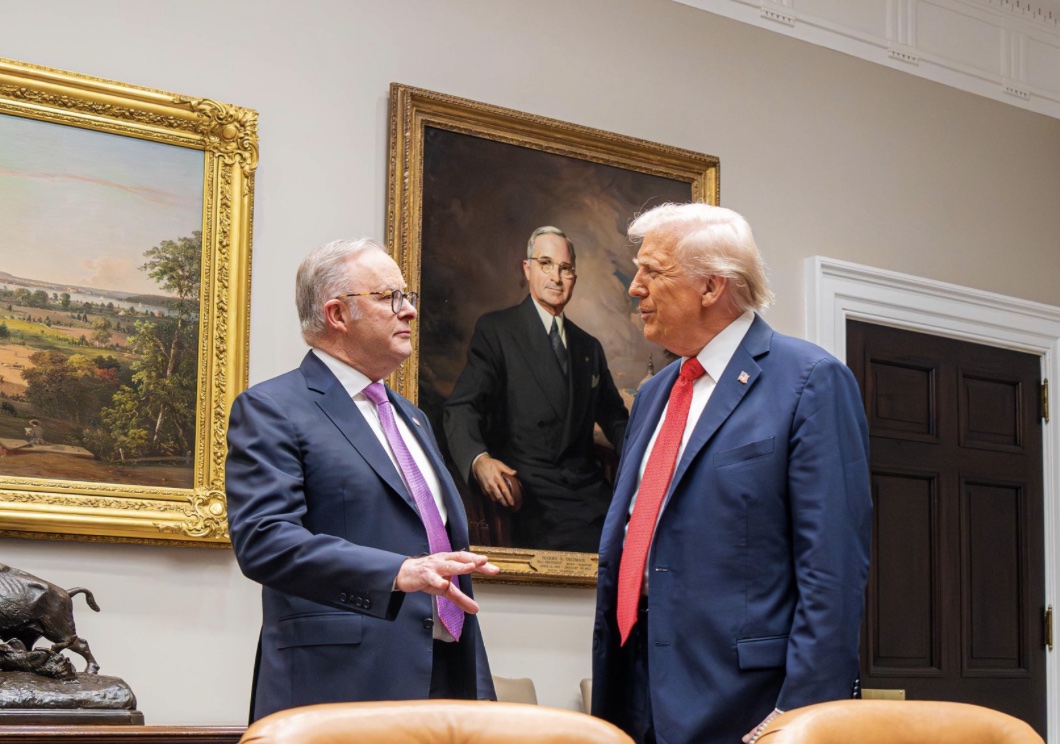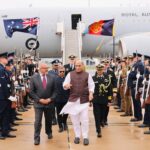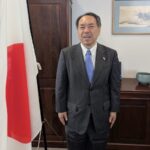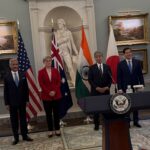Australian Prime Minister Anthony Albanese visited the White House on October 20, 2025, in a high-profile meeting with US President Donald Trump, highlighting a shared focus on defense cooperation, trade, and the landmark framework on critical minerals and rare earths. The visit marked an important step in reinforcing the strategic and economic partnership between the two Indo-Pacific allies.
Trump welcomed Albanese at the Oval Office, calling Australia a “fantastic place” and praising the Prime Minister’s leadership. “We’re here to talk about trade, submarines, and lots of other military equipment, the best in the world,” he said, adding that “In about a year from now, we’ll have so much critical mineral and rare earths that you won’t know what to do with them.”
Albanese began on a warm note, thanking Trump for “showing us around the improved Oval Office” and hosting the Australian delegation across the road at Blair House. “We could have walked, but they didn’t let us; we drove all of 20 meters,” he joked.
Albanese thanked Trump for the invitation, noting the strength and history of the U.S.–Australia alliance, noting that the two nations “have stood side by side for freedom and democracy.” He also pointed to trade as an area of continued opportunity. “The U.S. has a trade surplus with Australia, and we can continue to take every chance to make this relationship even stronger,” he said.
Trump, in turn, highlighted Australia’s purchases of American aircraft as part of that surplus. “You buy a lot of airplanes, the beautiful Boeings and that helps,” he said. “Boeing makes great planes, and Australia, because of its location, needs a lot of them. That gives us a bit of an advantage.”
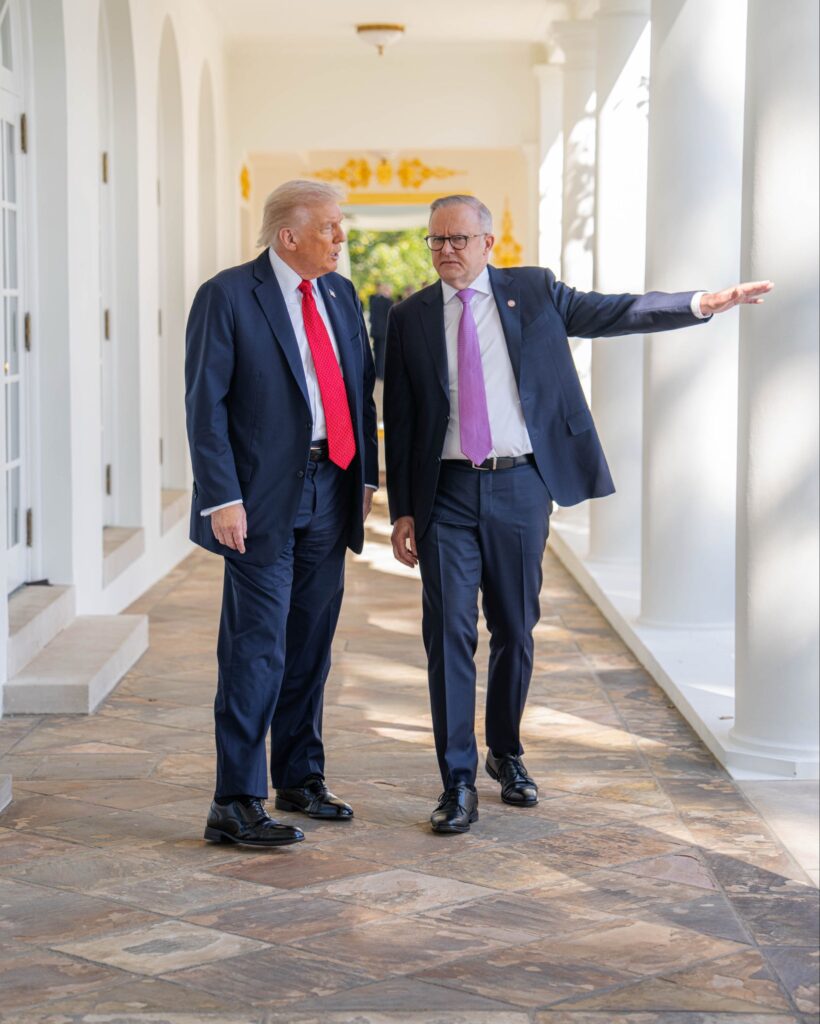
At the center of the meeting was the newly signed United States–Australia Framework for Securing Supply in the Mining and Processing of Critical Minerals and Rare Earths, a policy agreement designed to secure and diversify supply chains for materials essential to defense systems, clean energy, and high-tech manufacturing.
Under this framework, both nations will work together to ensure reliable access to the minerals and rare earths required for advanced manufacturing and defense industries. The U.S. will draw on its industrial stockpiles, while Australia will leverage its Critical Minerals Strategic Reserve to build greater resilience.
Each country has committed to invest at least $1 billion within six months to support new mining and processing projects across both nations. Projects will be jointly selected to fill gaps in supply chains and supported through a mix of loans, equity, and guarantees to encourage private sector participation. To promote further investment, a Mining, Minerals and Metals Investment Ministerial will be convened within 180 days of the agreement.
The framework also aims to streamline approvals for mining, separation, and processing by cutting red tape and fast-tracking permits. Both governments agreed to protect domestic industries from unfair trade practices and non-market policies, considering mechanisms such as a price floor system or standards-based framework to maintain fair value.
Recognizing the strategic importance of critical minerals, the U.S. and Australia will tighten national security reviews to deter foreign acquisitions that could threaten national interests. They will also invest in recycling technologies to recover minerals from waste and reduce reliance on new extraction.
The framework encourages both nations to collaborate with trusted allies to build secure, transparent, and diversified global supply chains. It also includes plans for joint geological mapping to identify new mineral resources in both countries and beyond.
To coordinate these initiatives, a U.S.–Australia Critical Minerals Supply Security Response Group will be established, co-led by the U.S. Secretary of Energy and Australia’s Minister for Resources. The group will monitor supply vulnerabilities, prioritize key minerals, and accelerate the delivery of processing projects under the agreement.
The critical minerals and rare earths agreement will see an $8.5 billion pipeline, including joint projects jointly funded by both Australian and U.S. companies such as Alcoa over the next six months.
Defense cooperation was another major focus of the meeting. Albanese reaffirmed the importance of the AUKUS defense partnership, describing it as “vital to our ability to project power in the Indo-Pacific and work closely with our allies.”
AUKUS, the strategic security partnership between Australia, the United Kingdom, and the United States, established in September 2021 seeks to strengthen defense and security cooperation across the Indo-Pacific. Its most high-profile element is helping Australia acquire nuclear-powered submarines, expanding its maritime reach and deterrence capabilities. Beyond submarines, AUKUS also fosters collaboration in artificial intelligence, quantum technologies, undersea warfare, cyber defense, hypersonic weapons, and electronic warfare.
Trump affirmed U.S. support for Australia’s capabilities under AUKUS, noting progress on the nuclear-powered submarine program and praising the new Surfwest facilities being built to support it. “They’re building magnificent docking and holding pads, very complex, very expensive, and very strong,” he said. “Australia’s military has been outstanding.”
Both leaders agreed that defense cooperation and secure resource supply are central to maintaining Indo-Pacific stability. Albanese concluded by reflecting on the warmth of the alliance: “Australians love America, and I think Americans kind of like Australia.”


